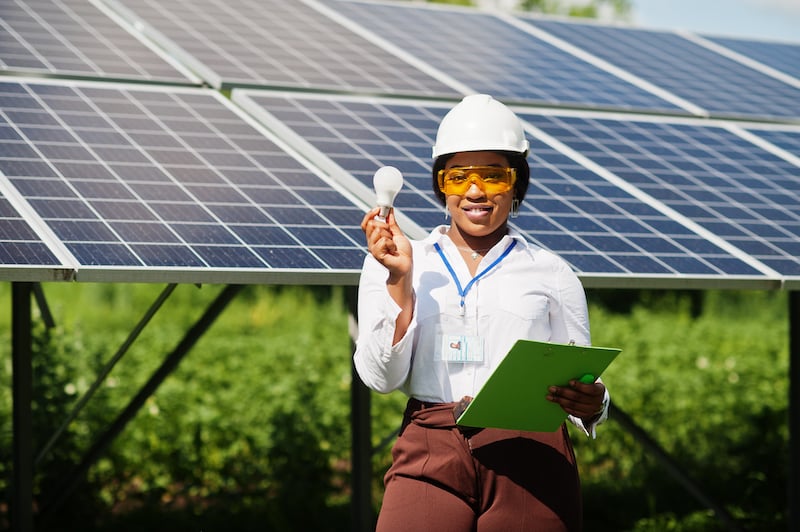Incentivising renewable energy through tax breaks
"According to the minister, from 1 March 2023, businesses will be able to reduce their taxable income by 125% of the cost of an investment in renewables."

By Jessie Taylor
As the South African government tackles the energy crisis, National Treasury has announced two key tax incentives to encourage individuals and businesses to assist with energy generation.
Finance Minister Enoch Godongwana recently announced tax incentives for individuals who install solar rooftop panels at their homes, as well as a tax break for businesses that invest in renewable energy.
Through these two incentives, the Treasury said it would be offering R4-billion in relief provided for individuals that install solar panels and R5-billion to companies through an expansion of the renewable energy tax incentive.
President Cyril Ramaphosa announced in his recent State of the Nation Address that incentives to encourage individuals and businesses to invest in solar energy generation have become a priority, as they offer one means of reducing the impact of load shedding on households and the economy.
Tax relief for individuals
Individuals who install rooftop solar panels during this tax year will be able to claim a rebate of 25% of the cost of the panels, up to a maximum of R15 000 per person. This can be used to reduce their tax liability in the 2023/24 tax year. This incentive aims to encourage homeowners to contribute to electricity generation by allowing them to claim the rebate against their personal income tax liability.
The following conditions apply:
- The rebate applies only to new and unused solar PV panels with a minimum capacity of 275W per panel (design output), installed as part of a new system or as an extension of an existing system.
- The solar panels must be installed at a private residence and have a certificate of electrical compliance issued.
- The rebate only applies to solar PV panels, not other forms of power generation like inverters or generators.
- To claim the incentive, individuals must present a VAT invoice and proof of payment to SARS, as well as the Certificate of Compliance.
- The rebate will only be claimable on submission of the ITR12 annual returns for individuals.
- The rebate is available to the person who pays for the system, so it is not confined to property owners. However, body corporates do not qualify.

Expanded tax incentives for businesses
Minister Gondwana has temporarily expanded the existing tax incentive Section 12B of the Income Tax Act, which provides for capital expenditure deductions for assets used in producing renewable energy.
This section originally allowed businesses to deduct 50% of the costs in the first year, 30% in the second and 20% in the third for qualifying investments in wind, concentrated solar, hydropower below 30 megawatts (MW), biomass and photovoltaic (PV) projects above 1 MW, and provided an accelerated capital allowance of 100% in the first year for solar PV energy projects of less than 1MW.
This incentive has now been temporarily expanded to allow businesses to claim a 125% deduction, which can all be claimed in the first year. The adjusted incentive will only be available for investments brought into use for the first time between 1 March 2023 and 28 February 2025.
The rebate is available for any renewable energy project, with no cap on the generation capacity.
According to the minister, from 1 March 2023, businesses will be able to reduce their taxable income by 125% of the cost of an investment in renewables.
“There will be no thresholds on the size of the projects that qualify, and the incentive will be available for two years to stimulate investment in the short term,” he said.
The current incentive allows businesses to deduct the costs of qualifying investments over a one- or three-year period, which creates a cash flow benefit in the early years of a project.
Loan guarantee scheme
In addition, Finance Godongwana announced that the existing loan guarantee scheme - that was initially designed to help businesses recovering from the COVID-19 pandemic – would be used to incentivise renewable energy and rooftop solar.
This programme, known as the Energy Bounce Back Scheme, was launched in April, with the aim of incentivising renewable energy and rooftop solar. The scheme will also address energy-related constraints experienced by small and medium enterprises.
Minister Godongwana has also announced that, under the scheme, the government would guarantee solar-related loans for small and medium enterprises on a 20% first-loss basis.
This means that government will carry 20% of the loss on defaulted loans, so banks don't have to take the whole loss.
It is hoped that this will encourage banks to issue more loans for renewable energy projects.
The amendments to the scheme also allow banks to borrow directly from the scheme to facilitate the leasing of solar energy equipment to small businesses. Small businesses installing solar will also be able to borrow finance for working capital.
Read more about renewable energy in ESG: The Future of Sustainability:


.svg)











